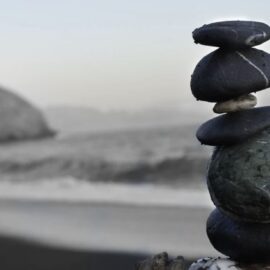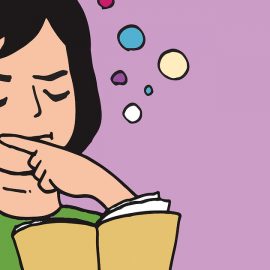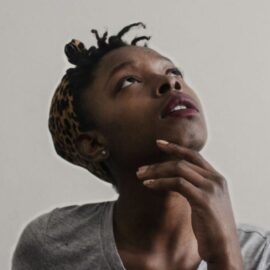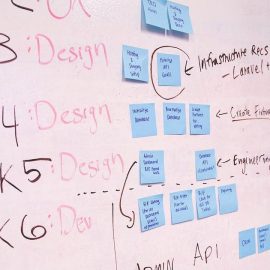
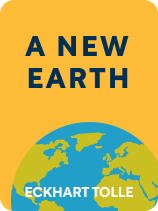
This article is an excerpt from the Shortform book guide to "A New Earth" by Eckhart Tolle. Shortform has the world's best summaries and analyses of books you should be reading.
Like this article? Sign up for a free trial here .
What is Eckhart Tolle’s A New Earth about? What are some of the most noteworthy passages worth revisiting?
In A New Earth, Eckhart Tolle asserts that human consciousness is trapped in a state of dysfunction because we are controlled by our ego, which drives us to seek fulfillment by owning things and feeling superior to others. This has led to harm to both our planet and our species because of consumerism, ideological wars, pollution, and more. Tolle argues that we must undergo an evolution of consciousness if humanity and the earth are to survive.
Below is a selection of A New Earth quotes with explanations.
A New Earth: Awakening to Your Life’s Purpose
In his book A New Earth, Eckhart Tolle argues that our ego-driven behaviors have reached a critical point—we must elevate our consciousness now for the survival of our species and planet. The book teaches how to do this: how to elevate their consciousness by becoming aware of their ego-driven thought and behavior patterns, and how to overcome those patterns.
The following A New Earth quotes highlight some of his key ideas.
“When you don’t cover up the world with words and labels, a sense of the miraculous returns to your life that was lost a long time ago when humanity, instead of using thought, became possessed by thought.”
Tolle explains that thought elements are the recurring thought patterns we identify with, such as the roles we play (like mother, customer, or employee) and the ideologies we believe in (like morals, values, and religions).
Our thought elements shape how we interact with the world and lead to two forms of human dysfunction:
1. Inauthentic relationships: Tolle argues that when we adhere to societal roles, we act based on what we think that role calls for rather than how we really feel. When that happens, our relationships can become artificial. For example, when we’re playing a parent role, we might act superior because we’re “the knowledgeable adult,” and we therefore might end up missing a more authentic emotional connection that our child needs. In extreme forms, role-based relationships can lead to human mistreatment like slave versus master, or in everyday forms, like an abusive boss and submissive employee. Ultimately, when we see another person as a label—a child, slave, employee, and so on—rather than a human being, our relationship with them is formed according to this label rather than how we feel toward them.
2. Polarization and violence: When we attach our self-image to ideologies like religious beliefs, we want to feel these beliefs are “right” (superior) for our ego to feel “enough.” Consequently, we insist that others who contradict our beliefs are “wrong” and will often resort to violence to assert this truth. For example, during the Crusades, Christians raped, tortured, and killed those of different spiritual beliefs to assert Christianity as “right.” Ultimately, when others fail to share our beliefs, morals, or values, we experience negative emotions like anger, frustration, and resentment—the underlying causes of human polarization and violence.
“Authentic human interactions become impossible when you lose yourself in a role.”
Eckhart Tolle argues that when we adhere to societal roles, we act based on what we think that role calls for rather than how we really feel. When that happens, our relationships can become artificial. For example, when we’re playing a parent role, we might act superior because we’re “the knowledgeable adult,” and we therefore might end up missing a more authentic emotional connection that our child needs. In extreme forms, role-based relationships can lead to human mistreatment like slave versus master, or in everyday forms, like an abusive boss and submissive employee. Ultimately, when we see another person as a label—a child, slave, employee, and so on—rather than a human being, our relationship with them is formed according to this label rather than how we feel toward them.
For someone possessed by a heavy pain-body, it is often impossible to step outside his or her distorted interpretation, the heavily emotional “story.”
Tolle explains that our emotional identity is housed in an energy form called the pain-body—the part of our mind that collects and stores all the negative emotional experiences we’ve had in our life. The pain-body collects these emotional experiences, and the next time a similar situation occurs, it reminds us of our previous negative thoughts and emotions and prompts us to react in the same way. This suffering ultimately strengthens the ego because it feeds on negativity.
According to Eckhart Tolle, the pain-body not only stores these emotions but also feeds off them. So, the more we experience negative emotions, the denser and more reactive the pain-body gets, and the bleaker our emotional identity and perception of the world become. Additionally, the denser the pain-body becomes, the more it craves further negativity to sustain itself, and thus the more it seeks out, recognizes, and creates negative thoughts and emotions.
Therefore, our pain-body causes dysfunction by trapping us in an endless cycle of suffering that affects us and those closest to us.

———End of Preview———
Like what you just read? Read the rest of the world's best book summary and analysis of Eckhart Tolle's "A New Earth" at Shortform .
Here's what you'll find in our full A New Earth summary :
- Eckhart Tolle's guide on how to evaluate your consciousness
- How to overcome ego-driven thoughts and behaviors
- Why humanity must undergo an evolution of consciousness



